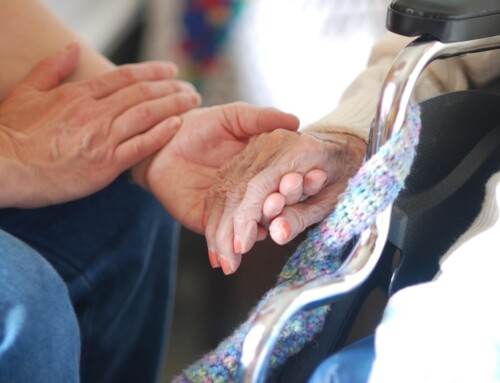We see families every day that struggle when it comes to connecting on a deeper level with their family members with memory issues. While our facilities can provide services to help, we won’t sugarcoat it: communicating and connecting with dementia patients is extremely hard, particularly for close relatives who previously had a tight bond. The good news? The more you commit to building and maintaining a new relationship despite their condition, the better your chance of forming a lasting connection. Today, we want to help you make meaningful connections by giving you some of our best tips for maintaining relationships with a loved one with dementia.

Establishing a Routine
A consistent daily routine can provide comfort and structure for your loved one with dementia. This sense of predictability can help reduce anxiety and confusion, making it easier for them to navigate their day and accept your presence. The goal of establishing a routine is to allow them to adjust to the new visit, even if they do not always fully remember the previous visits.
Start by setting regular times to visit and help out. Tying in these visits to care isn’t mandatory, but it can help them build connections and relationships in their mind between important parts of the day and your presence. Popular times to visit include mealtimes, bedtime, and recreational times, where they partake in their favorite activity.
However, you should keep the schedule flexible enough to accommodate both the good and the bad days. Trying to pigeonhole your family member into a particular activity at the same time every day, even when that day isn’t going great, can lead to greater frustration.
Using Therapeutic Music to Create Connections
Music has the unique ability to evoke once-lost memories, instantly making it a well-known tool for connecting with those with dementia. Therapeutic music can soothe agitation, stimulate positive interactions, and provide comfort and familiarity.
Try to find music that your loved one enjoyed in the past. If you don’t know, this might be a bit of trial-and-error, but familiar music can often trigger memories of joy, and it pays to find the right tune. Once you find out what they enjoy, create a playlist together, involving them in the process as much as possible. This can be a fun activity and gives them a sense of control and inclusion.
Use music to set the mood for other activities, such as during meal times or while doing puzzles. Music can work wonders, including deepening the relationship between you and your family member. They may not always remember the details, but music can help them associate you with fantastic moments in their life and build new memories going forward.
Practicing Clear Communication
Meaningful connections with a family member who has dementia is vital for maintaining a solid and loving connection, but this can be challenging, given the nature of the condition. It’s important to adopt strategies that simplify communication to navigate these difficulties.
Speaking clearly and using simple language can significantly reduce confusion. Short sentences and straightforward phrases are more easily understood than complex or abstract ideas. Additionally, maintaining eye contact during conversations can help in engaging your loved one, demonstrating your focus and interest in what they are saying.
You should also always approach conversations with patience and reassurance. The condition may slow their ability to find the right words, leading to frustration both for them and their caregivers. Giving them time to respond without rushing or showing signs of irritation can make a substantial difference. As long as you are making an effort to be there for your family member as they navigate this uncertain future, they will appreciate it – even if they can’t always express it.
A Banyan Residence is a memory care facility located in The Villages, Florida. Contact us today to visit our facility and learn how we help Florida seniors live their best lives.







